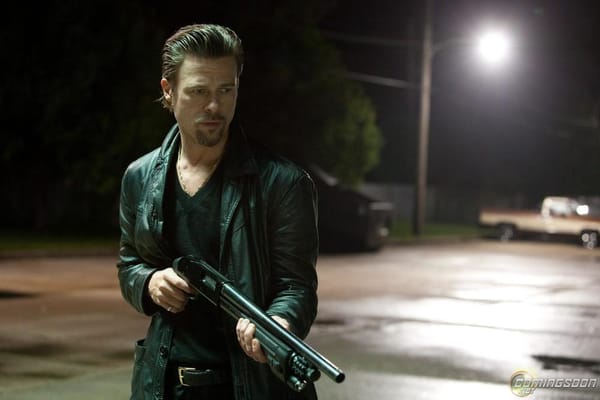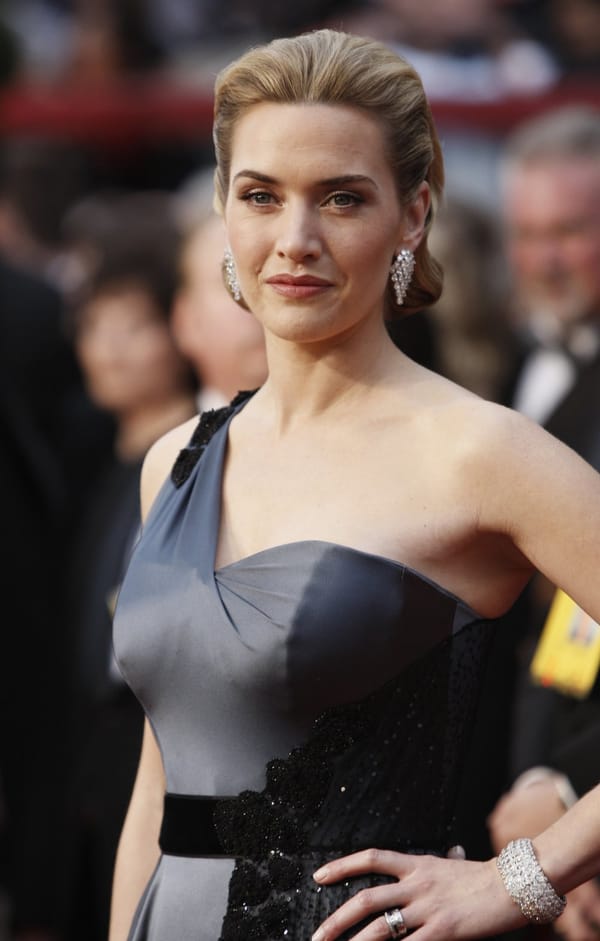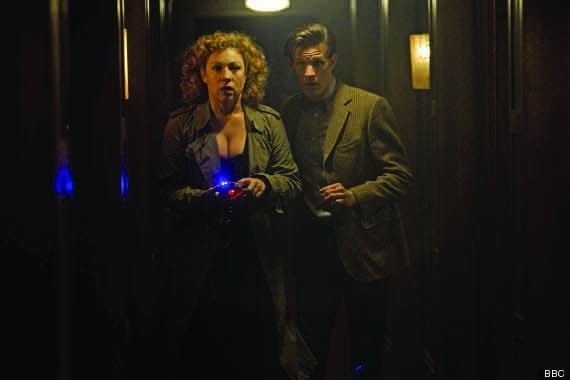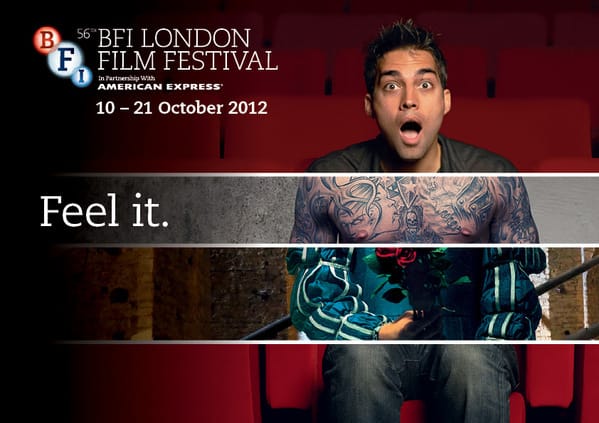The best films from the 1940s
It's pretty black and white as to what ones of these he likes...
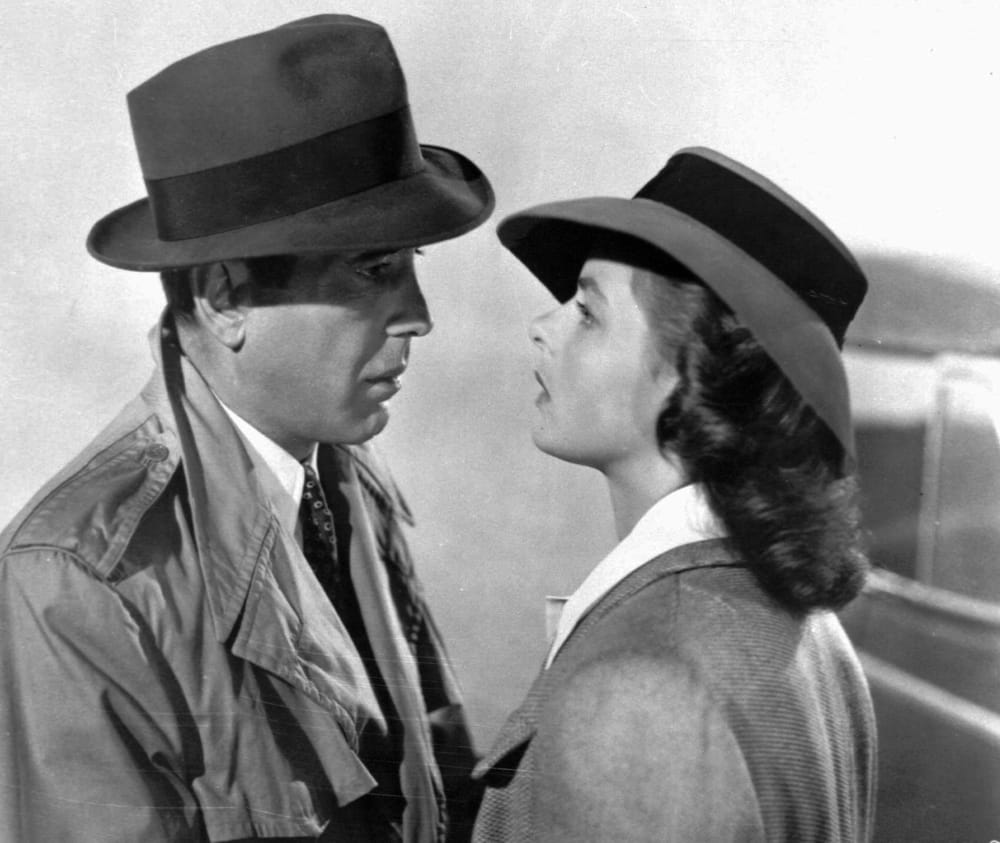
Recently, the British Film Institute (BFI) released the results of their celebrated poll, “THE GREATEST FILMS OF ALL TIME”, in which they surveyed film critics and directors to list their ten favourite films. Now the Felix Film team, as much as we’d love to, doesn’t have that kind of time or resources. And so we decided to split the films up according to the decades in which they were released. So every week, we will present you with our top films of each decade, so what comes after 1930s...erm...oh yes, the 40s.
- The Red Shoes (1948) Long before Darren Aronofsky shocked us all with his brutal and bloody “Black Swan”, English filmmakers Michael Powell and Emeric Pressburger had already tapped into the cut-throat world of ballet with their fearless adaptation of Hans Christian Andersen’s fairytale story of the same name. It’s an immensely stylish, haunting portrayal of a woman forever trapped in the seemingly inescapable world, and the world of ballet has never looked more hardcore and yet so beautiful. Directors Brian De Palma and Martin Scorsese list this as one of their favourite films.
- The Bicycle Thief (1948) The go-to film when anyone is talking about Italian neo-realism (Roberto Rossellini, Federico Fellini etc), or Italian cinema in general, there isn’t a final shot that is more heartbreaking or endearing as the one presented here. Non-actors were hired to play the parts, which further heightens the unflinchingly authentic look the film is so consistently praised for. Set in post-World War II Italy, a struggling father has his bicycle stolen, which he needs for a job he cannot afford to lose. Together with his son the two set out to search for it in the busy streets of Rome.
- Brief Encounter (1945) Sure it’s the story of an emotional love affair between two individuals who don’t quite have a good enough reason to be unhappy in their respective relationships, but in its warm, sympathetic direction and committed performances from the very few members of the cast, especially the quietly outstanding Celia Johnson, what we get here is a carefully laid out, deeply touching and possibly at times devastating portrayal of potential love and passion that simply can never be. It’s heartbreaking, yet low-key and tender, a gentle, soothing mixture of touching emotions.
- Leave Her to Heaven (1945) Gene Tierney makes one hell of a femme fatale as the beautiful, seductive yet highly dangerous, unpredictable and obsessive Ellen, murdering, blackmailing, lying and manipulating her way into the heart of the man she greatly desires. Filmed in gorgeous colours that do wonders for Tierney’s sharp, piercing features, this shows the actress on top form, as well as some shocking plot developments considered controversial for its time, that still ring true even to this day. It’s a brutal and merciless tale of cut-throat, selfish fixation that is also made with irresistible beauty.
- Mildred Pierce (1945) After years of absence from the screen, Joan Crawford, fresh out of her terminated contract with MGM, striking up a new deal with Warner Brothers, actively sought out this leading role, and her efforts certainly paid off, as her only Oscar win came from her portrayal of the titular selfless single mother who lets her unconditional love for her children get the better of her during the aftermath of The Great Depression. Told in flashback sequences after a scene of a mysterious murder, it also adds an element of noir in the midst of the melodrama.
- The Lady Eve (1941) Between Henry Fonda and Barbara Stanwyck, whose bright and sparkling dynamic that immediately comes right off the screen is enough of a worthy feature, we are also treated to a delightful little screwball comedy package that balances not only the big laughs but also an underlying subplot of three con-artists trying to scam an eligible bachelor. The sassy Stanwyck and well-meaning but ever-so dim and charmingly awkward Fonda make one appealing duo and they effortlessly win us all over with their romance. Stanwyck’s wedding gown caused a major fashion boom, dubbed the “The Lady Eve Dress”.
- His Girl Friday (1940) It moves at an extraordinary pace, with clever, witty lines rapidly fired by actors who are endlessly watchable. The outstanding Cary Grant and Rosalind Russell play journalists on the hunt for a big news story about to blow wide open. The catch is that the two of them used to be married, with the ex-wife now about to marry a new man. The ex-husband tries to use every trick up his sleeve to prevent this from happening, whilst trying to land this article. And the result of this unstable mixture? Chaos. Complete and utter hysterical chaos.
- It’s a Wonderful Life (1946) Every year near the Christmas period you will always, always, always, always, always find at least one channel on television broadcasting the most quintessential holiday movie of all time. Although opening to mixed reviews at the time of its first release, time has only been an asset to Frank Capra’s post-war efforts with James Stewart in his first role after his time served in the military. It celebrates life, love, and everything that is good, honest and true in the world. Maybe something a broken world wasn’t quite ready to see, but a highly uplifting tale nonetheless.
- Double Indemnity (1944) Another Barbara Stanwyck picture here, but this time she is a striking yet deadly femme fatale (there were a lot of them back in the days of black-and-white cinema), luring a well-behaved insurance agent into committing murder to double a life-insurance payout. The film’s mood remains dark and foggy throughout, as one unpredictable and menacing revelation after another await its tightly scripted plot. Billy Wilder became a prominent name, with even Alfred Hitchcock remarking the two most important words in motion pictures are “Billy” and “Wilder.”
- Casablanca (1942) Playboy Hugh Hefner’s favourite film of all time; his reason being that it has everything: “a fantastic script, adventure, romance, unrequited love, friendship…everything.” Never were truer words spoken, as the winner of the 1940s decade goes to a timeless love story set in the African city during the chaos of World War II. Humphrey Bogart’s final act is heart-wrenchingly beautiful, Ingrid Bergman is his equally effective true love, and the endlessly quotable lines (“here’s looking at you, kid” being one of many) all help shape the lasting appeal of its romanticism.

